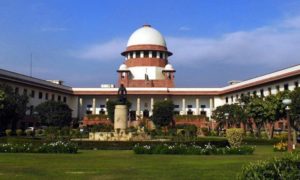 NEW DELHI: The Kerala government on Saturday, in one unusual move, approached the Supreme Court against President Droupadi Murmu’s indecision regarding the bills passed by the Assembly.
NEW DELHI: The Kerala government on Saturday, in one unusual move, approached the Supreme Court against President Droupadi Murmu’s indecision regarding the bills passed by the Assembly.
Earlier, from the seven bills sent by Kerala governor Arif Mohammad Khan to the president, only Lokayukta Bill was approved. Meanwhile, the bill to remove the governor from the post of university chancellor, the university law amendment bill and the bill to change the structure of the search committee to appoint vice-chancellors were sent back by the President without approval. And now, the state filed a writ petition in the Supreme Court citing ambiguity in the decision regarding the other three bills.
The petition filed by state chief secretary and MLA TP Ramakrishnan implicates the President’s Secretary and the Governor. The petition also points out the violation of Articles 14, 200 and 201 of the Constitution committed by the president of India.
Bills should be directed to be returned
1. Two demands are made in the petition.
As the bills fall within the ambit of state affairs, the action left to the President should be declared unconstitutional. Rashtrapati Bhavan should direct the bills to be returned. The central government’s move to advise the President to withhold assent to bills is against the federal system.
2. Out of the seven bills, four were seized but only two remain there. One is to remove the governor from the post of chancellor of the universities. The second relates to the appointment of Appellate Tribunals of Universities. Four were sent back. The Lokayukta approved only the amendment.
3. Bills sent back by the President will have to be brought to the Assembly and recommended again with amendments. It has been done earlier in the Plachimada Bill. Bills sent directly by the governor are again recommended by the Cabinet and the governor can be compelled to sign them.
The petition is under Article 32 of the Constitution to approach the Supreme Court for violation of fundamental rights. States can approach the court as if it were a Public Interest Litigation under this section. A complaint can also be made by questioning the delay in the President’s decision.
